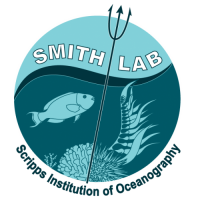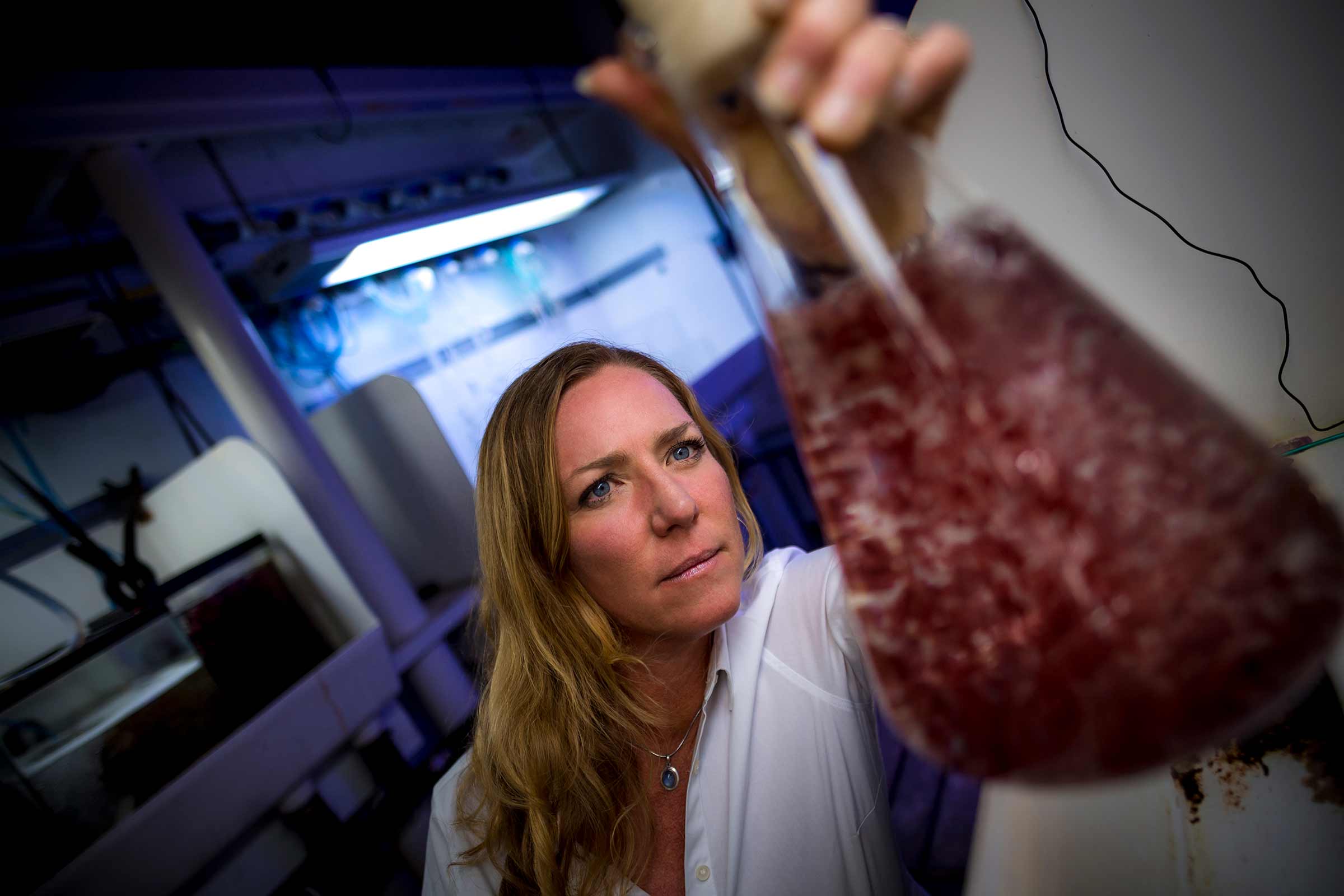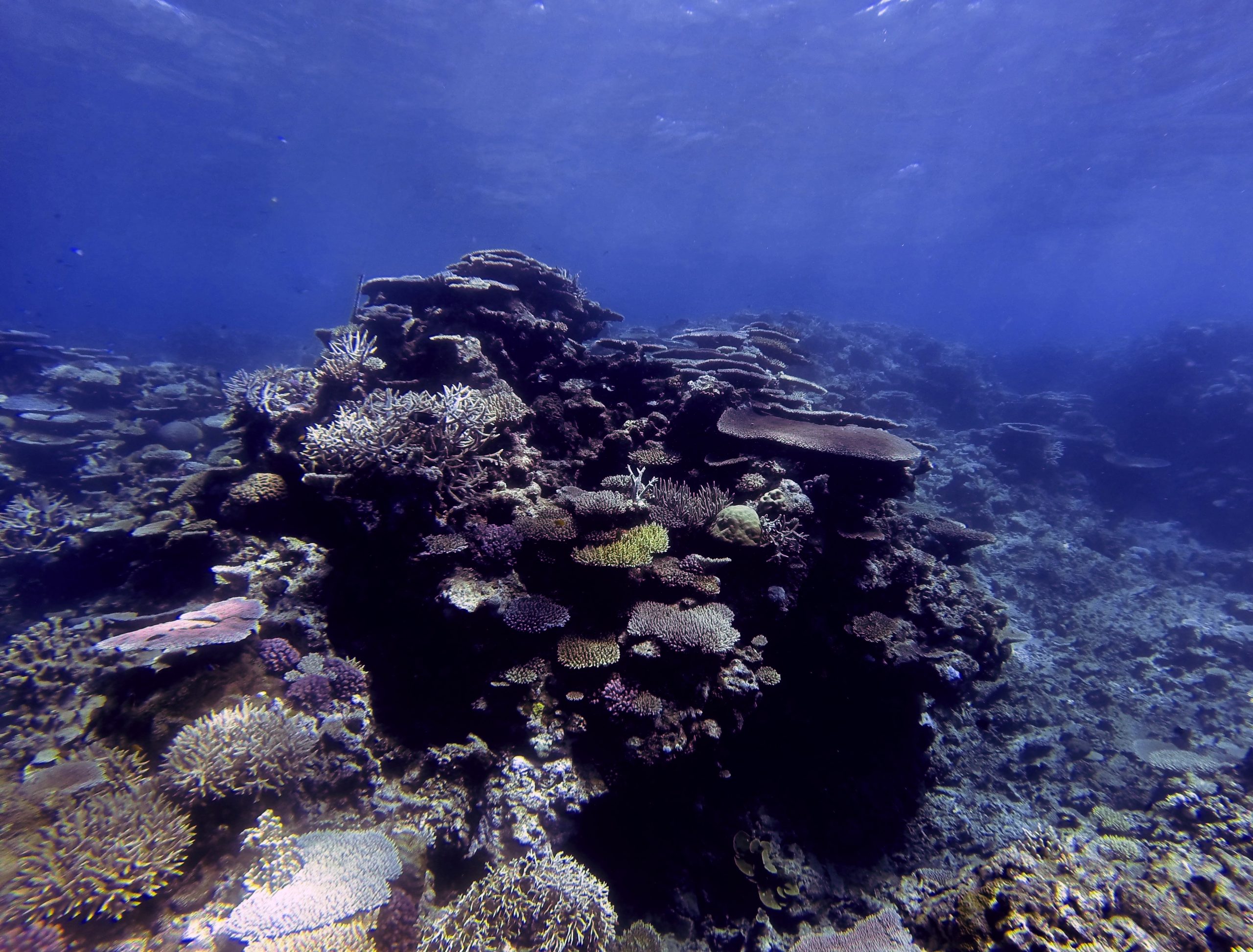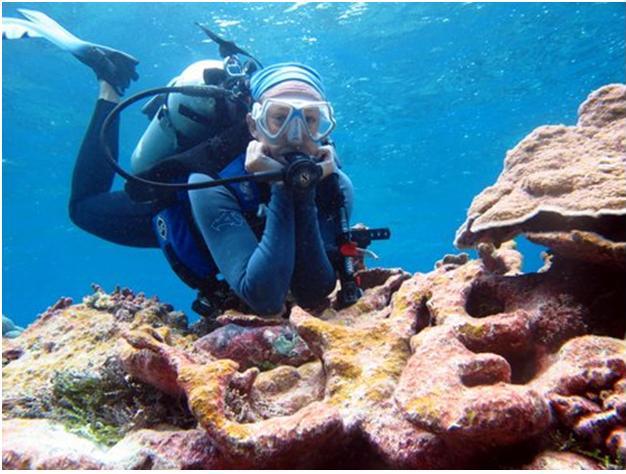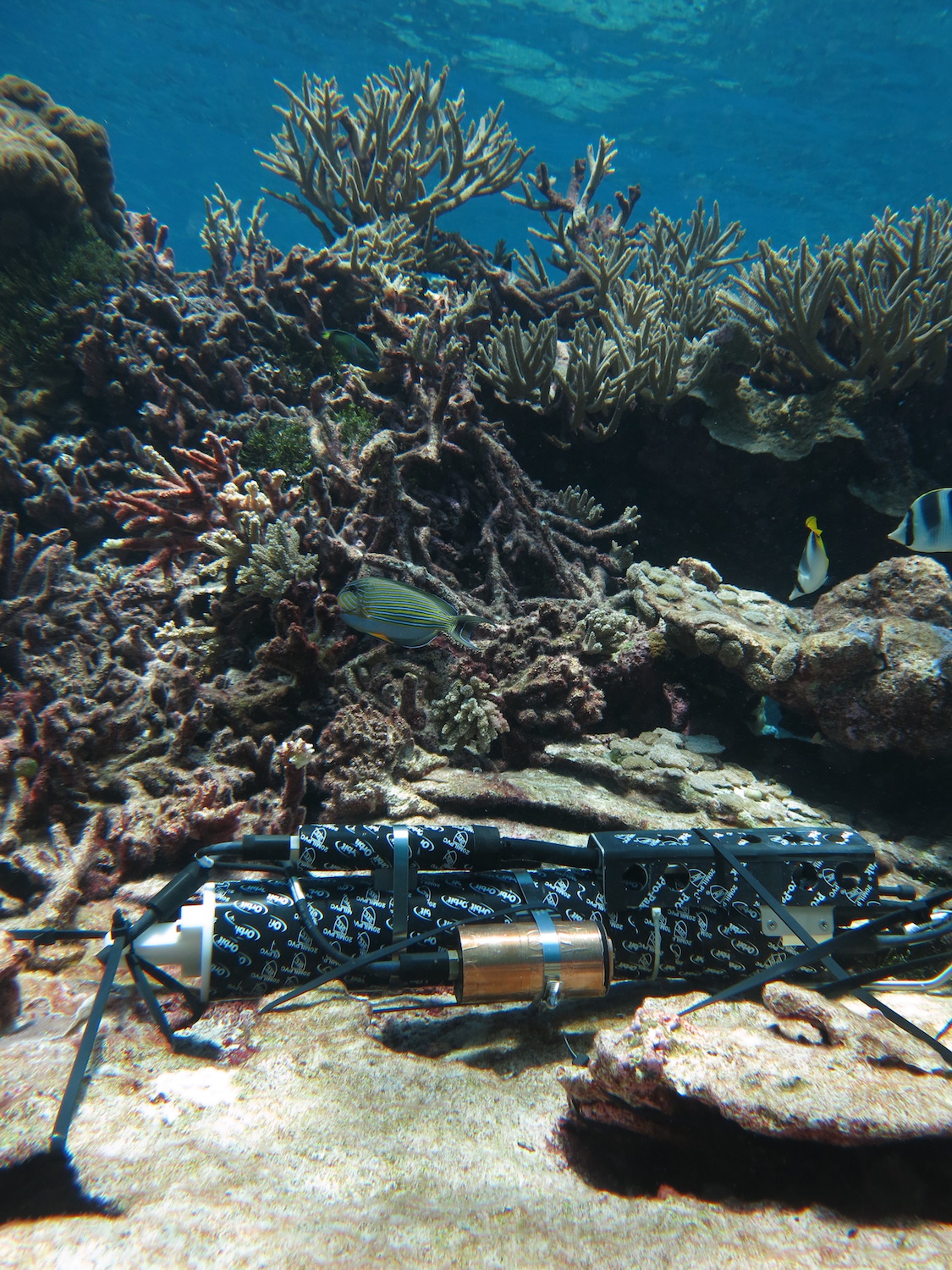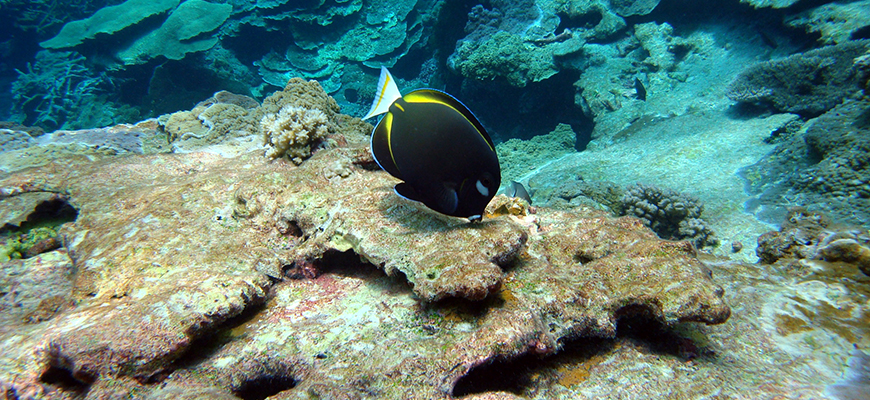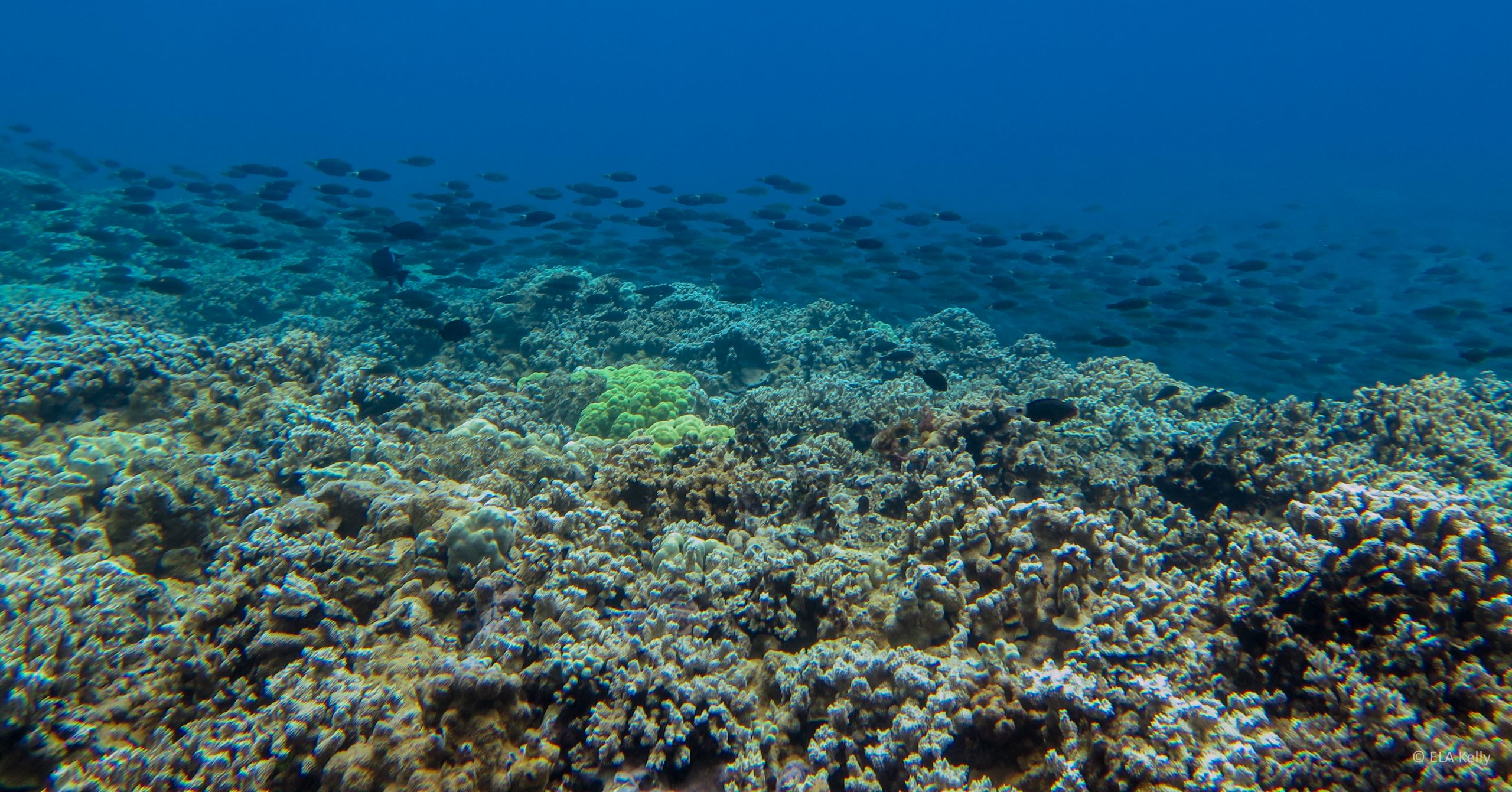This week Dr. Jen Smith’s research was featured by the UC San Diego News Center, highlighting her recent collaboration with agricultural scientists at UC Davis. Dr. Smith is researching methods of cultivation of Asparagopsis taxiformis, a red seaweed that has been discovered to reduce methane emissions from cow burps in studies conducted at UC Davis. She’s also working with scientists at … Read More
An incredible story of reef recovery after coral bleaching at Palmyra Atoll
Scripps Oceanography published a press release this week celebrating the Smith Lab’s most recent publication led by Dr. Mike Fox. The paper, published in Coral Reefs on April 5th, reveals an optimistic recovery of coral reefs at Palmyra Atoll following the 2015 global bleaching event. In 2015, 90% of corals at Palmyra bleached, and an astounding 90% of those bleached corals … Read More
Orion McCarthy answers the question, “What will climate change mean for corals?”
Orion McCarthy, a 1st year PhD student in the Smith lab, recently contributed an article to the Agenda for International Development detailing what climate change might mean for corals. In his article he addresses the importance of coral reefs and details the processes that are triggered by climate change that could lead to a decrease in reef health worldwide. It’s … Read More
Adi Khen on The Importance of Art to Communicate Science
Smith lab PhD candidate, Adi Khen, recently wrote a blog post for the Climate Science Alliance in which she discusses the importance of art in communicating science to a broad audience. Click here to read her post! For more great artwork by Adi, check out her website here!
100IC team featured in bioGraphic while on expedition in the Cook Islands
Researchers from the 100 Island Challenge team were interviewed for a piece in bioGraphic in January on an expedition to Rarotonga in the Cook Islands. The article, “Picture of Health,” published online last week, details the daily life of researchers in the field and shares the team’s optimistic view of coral reef health in areas where local managers are making waves to … Read More
Smith Lab alum, Maggie Johnson, uses her field skills to learn more about Panama’s reefs
Smith Lab Ph.D. alum, Dr. Maggie Johnson, was recently featured in the latest issue of Trópicos for her work studying coral reefs of Panama as part of her postdoctoral research with the Smithsonian Tropical Research Institute. Check out this YouTube video featuring Maggie’s postdoctoral work in Bocas del Toro, where she uses field techniques she learned in the Smith Lab to … Read More
100 Island Challenge featured at SXSW: “Saving coral reefs one pixel at a time”
This year at the SXSW festival in Austin, Texas there was a special panel focusing on the use of technology in coral reef conservation – “Saving Coral Reefs One Pixel at a Time”. Dr. Jennifer Smith spoke on this panel alongside Zack Rago, from the documentary, Chasing Coral, and Joanna Klein, a science journalist from the New York Times. … Read More
Collaboration in the news: Smith Lab assists US Fish and Wildlife Service with water quality monitoring at Palmyra Atoll
On a recent trip to Palmyra Atoll, members of the Smith Lab assisted US Fish and Wildlife Service (USFWS) with the deployment of a nearshore water quality sensor. The sensor, a Sea-Bird Electronics 16plus V2 SeaCAT Recorder with integrated WET Labs ECO-FLNTUS (say that 10 times fast!), is part of the Pacific Islands Ocean Observing System’s (PacIOOS) Water Quality Sensor … Read More
New study by SIO alum, Dr. Maggie Johnson, reveals how turf algae fare in the face of global change
Dr. Maggie Johnson, a recent Smith Lab PhD grad, recently published a study in the journal Coral Reefs revealing how epilithic and endolithic algae (that is, algae that grows on top of and beneath the surface of “rocks”, respectively) respond to increasing ocean temperature and acidification (lower pH). Samples were collected from turf-covered substrate in Moorea, and were exposed for … Read More
Herbivore management may be the key to balancing the energetic budget on coral reefs
A new paper published by Emily Kelly and colleagues explains how we can balance the energetic budget on Hawaiian coral reefs through herbivore management and protection. Herbivores on coral reefs play an important role in controlling algal growth, but in systems where density of herbivores is low, algae can grow at a faster rate than they are consumed, resulting in a … Read More

